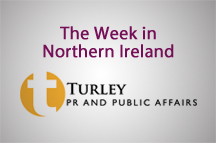 So it’s all over for at least another four years. As the last tattered election posters flap mournfully on the flag posts, the new batch of 108 MLAs take their seats at Stormont.
So it’s all over for at least another four years. As the last tattered election posters flap mournfully on the flag posts, the new batch of 108 MLAs take their seats at Stormont.
Indeed, as I write this, I’ve just returned from attending the first session of the new Assembly, making sure that every one of them has a copy of the most recent Action Mental Health document in their pack to read over the weekend. We’ve worked exceptionally hard to bring the issue of Mental Health service provision to the top of the political agenda, and today was a useful day to remind the parties of their manifesto commitments (as negotiations on the Programme for Government take place).
In some ways, the election changed little, however, just because the main parties returned essentially unscathed, doesn’t mean that results were free from surprise and shock.
Firstly, there are some very interesting new faces, with veteran socialist commentator Eamonn McCann elected to the Assembly for the first time, alongside his People Before Profit colleague Gerry Carroll, who remarkably topped the poll in West Belfast.
The DUP have returned to Stormont reinvigorated and emboldened by their outstanding haul of 38 seats, with new party leader and First Minister Arlene Foster hugely strengthened by the clear popularity which she holds across the electorate.
The Stormont Assembly also boasts one of, if not the highest quota of female MLAs with 30 out of 108 women elected. This has got to be a hugely positive development in anyone’s book. There have also been some surprises, with Jim Allister’s TUV failing to add any more MLAs to their roster, much to the pleasure of his former DUP colleagues. The Green Party’s Claire Bailey took a second seat for her party in the constituency of South Belfast at the expense of the high profile Fearghal McKinney of the SDLP, whilst the election of the independent MLA Claire Sugden, also something of a surprise.
Many lobbyists who have worked in the health field will also be mourning the absence of the outstanding Maeve McLoughlin, Sinn Fein’s former chair of the Health Committee whose loss to the Assembly will be keenly felt.
So what does it all mean? From talking to senior figures in all of the parties (particularly within the DUP and Sinn Fein), there is a clear realisation that in this forthcoming Assembly, there is a real need to deliver. The previous administration was dogged by infighting between the two main parties over welfare reform, leading to a massive drain on respect for the institutions. The failure of the last Assembly to deliver on a wide range of issues was clear for all to see, and will surely not be tolerated by the electorate this time around.
There has also been a worrying upward trend in violent attacks and indeed murders in recent months, highlighting the need for democracy to be seen to deliver for communities still weighed down by paramilitarism and violence. Northern Ireland has come a long way, but people here need to see Stormont address and solve many of the problems which still haven’t been tackled. Our manufacturing sector needs better support in order to create more jobs, the IT sector still doesn’t have anything like the flow of well-trained programmers whom it could employ almost immediately. The health service still suffers from major funding and organisational issues, whilst the infrastructure is some way off what’s required. The rail and road link to Derry is unacceptably poor, and energy for business simply costs too much.
The ghost of Brexit hovers at the door, and we still have to negotiate many of the funding cuts which have yet to bite. However for the time being, the atmosphere is better and there aren’t as many potential pitfalls to be overcome in the next term.
So it’s all smiles at Stormont once again, and for those of us with the privilege of working close to that institution, it’s time to get down to work.














